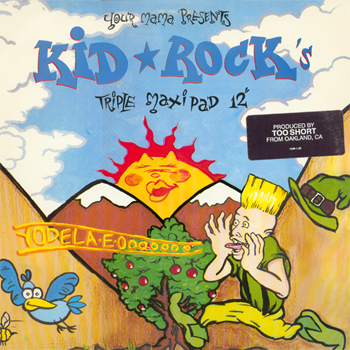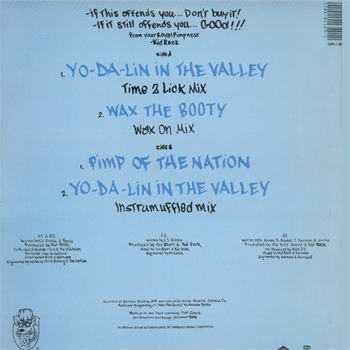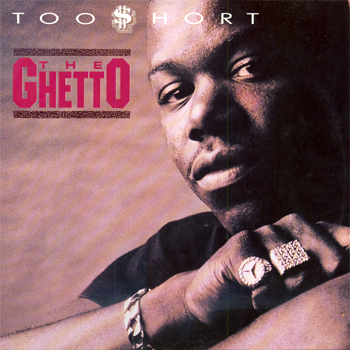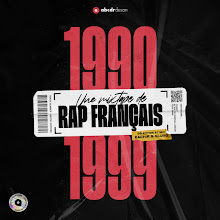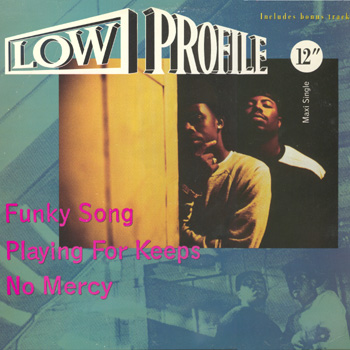
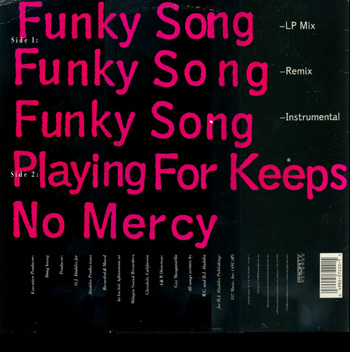 Low Profile : Playing For Keeps (Priority, 1989)
Low Profile : Playing For Keeps (Priority, 1989)Back in the days, before there was such a thing as G Funk, Los Angeles was producing some of the best hip hop music ever made, but no one cared. The revolution that happened in New-York in 1988 reflects clearly in california's hip hop from 1989 to 1992. Before that, west coast hip hop was strongly influenced by electro funk but after 1988 everybody bought samplers and started to loop as many funky breakbeats as possible in every song.
In the late eighties hip-hop crates was filled with cheesy dance influenced singles coming from new-yorkers trying to jump on the Rob Base bandwagon. Actually I really feel sorry for those young people who are fooled by that random rap fade, 'cause when you think of it, the average 1989 rap 12" from the east coast sound closer to Twin Hype than Big Daddy Kane. I'm not saying that every LA record at that time was dope, but there are a lot of underestimated records from that time and place.
Since the most visible angelinos were Ice T and NWA, everybody dismissed LA rap as gangsta rap, which not only is not not true but is also dumb. Why do people judge a work of art only for its topic ? You don't see movie critics disrespecting Al Pacino for doing mafia related movies ? OK, gangsta rappers have limited subjects such as dope dealing and drive-by shooting, while New Yorkers were so versatile, talking about partying, crushing other MCs and... well nothing else really.
The most embarassing is that a lot of so-called gangsta rappers were not doing gangsta rap. People were quick to classified gangsta rappers by the clothes that they were wearing or other superficial reasons. If you listen to the debut albums by DOC, King T or Low Profile you would be surprised by how many reference to gangs banging they made : not more that one on each album. Actually the Uzi Bros were way more conscious that Tribe Called Quest.
WC was quite upset to see his record labelled as a gangsta rapper album back then, that's why they made this answer record :"
Some idiot tried to claim I was doing some dirt 'cause I wore corduroy's and a sweatshirt / but if you took time to listen to the album / you'd see the W was representing peace". Of course after he went on to do a super group with Ice Cube and Mack 10, where they didn't exactly represent peace, but that's another story.
Low Profile : Playing For Keeps (Priority, 1989)Il y a longtemps avant l'invention du G Funk, Los Angeles produisait le meilleur hip hop jamais enregistré, mais tout le monde s'en foutait. La révolution qui a secoué New York en 1988 a mis un an pour transformer le son californien. Jusque là le rap west coast était profondément marqué par l'electro funk. C'ets après 1988 que tout le monde a acheté des sampleurs et a commencé à échantillonner les breaks les plus funky possible.
A la fin des années 80 les bacs hip-hop étaient envahis de disques à moitié dance fait par des new-yorkais traumatisés par les disques de Rob Base. Si on achète au hasard n'importe quels maxis east coast de 1989, on tombe plus souvent sur des Twin Hype que sur des Big Daddy Kane. Pour autant tous les disques de LA de l'époque ne sont pas exceptionnels, mais il reste beaucoup de disques mésestimés de cette période .
Les angelinos les plus connus à l'époque étant Ice T et NWA, beaucoup ont voulu croire que tout le rap de Los Angeles était gangsta. Beaucoup de groupes qu'on qualifiait de gangsta rap à l'époque ne parlait que très peu de gangs dans leurs paroles. Les premiers albums de DOC, King T ou Low Profile évoque à peine les gangs. DOC ne parle pas du tout de gang, seul Eazy E évoque un drivez by à pied (un "walk-by") dans The Grand Finale, King T parle vite fait de porter des couleurs neutres pour aller en soirée, et WC dénonce les ravages du crack dans How Ya Livin et condamne l'argent facile dans That's Y They Do It. En fait même un groupe comme Uzi Bros avait plus de lyrics conscients que Tribe Called Quest.
WC était vénère que son disque soit considéré comme un album de gangsta rap, c'est pour celà qu'ils ont rectifié le tir avec cette face B, Playing For Keeps : "
Some idiot tried to claim I was doing some dirt 'cause I wore corduroy's and a sweatshirt / but if you took time to listen to the album / you'd see the W was representing peace". Par la suite WC a fait équipe avec Ice Cube et Mack 10, et la bien sur les paroles sont devenues de moins en moins pacifistes, mais c'est une autre histoire.
